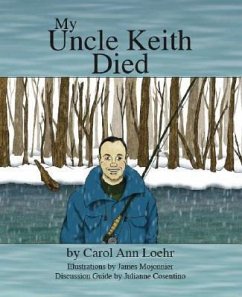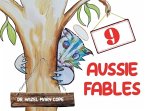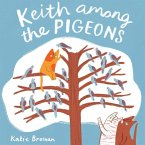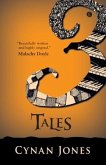17,99 €
inkl. MwSt.
Versandfertig in 2-4 Wochen

9 °P sammeln
- Broschiertes Buch
- Merkliste
- Auf die Merkliste
- Bewerten Bewerten
- Teilen
- Produkt teilen
- Produkterinnerung
- Produkterinnerung
Should suicide touch our lives, children naturally have questions?whether verbalized or not. How will we answer their questions? This book provides vital support for parents and professionals.
Andere Kunden interessierten sich auch für
![Penguin Minis Puffin in Bloom Boxed Set Penguin Minis Puffin in Bloom Boxed Set]() VariousPenguin Minis Puffin in Bloom Boxed Set32,99 €
VariousPenguin Minis Puffin in Bloom Boxed Set32,99 €![9 Aussie Fables 9 Aussie Fables]() Hazel Mary Cope9 Aussie Fables24,99 €
Hazel Mary Cope9 Aussie Fables24,99 €![Keith Among the Pigeons Keith Among the Pigeons]() Katie BrosnanKeith Among the Pigeons16,99 €
Katie BrosnanKeith Among the Pigeons16,99 €![I Feel Different, Mummy I Feel Different, Mummy]() Tracey BrittonI Feel Different, Mummy9,49 €
Tracey BrittonI Feel Different, Mummy9,49 €![Everything Comes Next Everything Comes Next]() Naomi Shihab NyeEverything Comes Next14,99 €
Naomi Shihab NyeEverything Comes Next14,99 €![Perfectly Petra Perfectly Petra]() Amber Hayden DixonPerfectly Petra28,99 €
Amber Hayden DixonPerfectly Petra28,99 €![Three Tales Three Tales]() Cynan JonesThree Tales9,49 €
Cynan JonesThree Tales9,49 €-
-
-
Should suicide touch our lives, children naturally have questions?whether verbalized or not. How will we answer their questions? This book provides vital support for parents and professionals.
Hinweis: Dieser Artikel kann nur an eine deutsche Lieferadresse ausgeliefert werden.
Hinweis: Dieser Artikel kann nur an eine deutsche Lieferadresse ausgeliefert werden.
Produktdetails
- Produktdetails
- Verlag: Trafford Publishing
- Seitenzahl: 26
- Erscheinungstermin: August 2009
- Englisch
- Abmessung: 279mm x 216mm x 2mm
- Gewicht: 114g
- ISBN-13: 9781425102623
- ISBN-10: 142510262X
- Artikelnr.: 54801019
- Herstellerkennzeichnung
- Libri GmbH
- Europaallee 1
- 36244 Bad Hersfeld
- gpsr@libri.de
- Verlag: Trafford Publishing
- Seitenzahl: 26
- Erscheinungstermin: August 2009
- Englisch
- Abmessung: 279mm x 216mm x 2mm
- Gewicht: 114g
- ISBN-13: 9781425102623
- ISBN-10: 142510262X
- Artikelnr.: 54801019
- Herstellerkennzeichnung
- Libri GmbH
- Europaallee 1
- 36244 Bad Hersfeld
- gpsr@libri.de
Purdue University College of Education Magazine Take Note SPEAKING THE UNSPEAKABLE By Kathy Mayer, freelance writer Alumnus, Professors break the silence on suicide When Carol Ilijanich Loehr (BA'65) comes to Purdue University's College of Education this fall, she'll be talking about a topic few broach: suicide. The conversation will be personal as she shares the experience of losing her 29-year-old son Keith to suicide a decade ago. "He was a high achiever in everything he did," she says. Wherever he set a goal, he mastered it: Sports, outdoor adventures, travel, education and his medical industry career engaged the passions of the University of California biology graduate who also earned a master's in marketing from Northwestern University. °He lived his life to such a fullness; his mother says. His death was a surprise and a shock, setting Loehr on a path of learning, then teaching about mental illness. A former elementary school teacher, Loehr is passing on what she learned through her children's took, "My Uncle Keith Died." It's the true tale of a I0-year-old boy's questions - and the answers he got - when he asked his mother how his uncle died. A Taboo Topic They're interested in what Carol says in her book and what she will say on campus when she visits education classes. "The material in 'My Uncle Keith Died' is really good." says Servaty-Seib. It includes information about depression, suicide and the idea of presenting a person who died by suicide as a 'whole' person, rather than just someone who was sick." In the book, which includes illustrations of the Loehr family by James Mojonnier, readers learn that Keith loved ice hockey, rowing, running and fly fishing. And he loved to joke around. "Suicide does not discriminate" Servaty-Seib says "It can be an issue for any family, and I think There is a sense of that in this book, even though it is not directly stated in that way." When Cody asks in the story "Why didn't Keith's family and friends try to help him feel better?," the reader learns what is often true. "Keith wanted to be strong... so he hid his feelings from us" Cody's mother answers, "Keith always looked like he was happy. It was like he was wearing a mask to hide his feelings of sadness." Cody's mother and the author's niece, Julianne Cosentino, a clinical social worker and 1990 Purdue graduate, helps readers through her two-page discussion guide at the back of the book. That's the goal, of course, to get people talking and learning. Loehr began that dialog even before writing the book, through her website, www.thegiftofkeith.org. She's continued it through various outreach activities, and this fall will realize one of her goals: working with future educators. Speaking to Purdue education students Wachter Morris is scheduling Loehr to speak to her seminar in school counseling and is working to coordinate speaking times with colleagues in other education fields. "It's a very important topic for everyone in education to be knowledgeable about," Wachter Morris says."Some topics, and suicide is one of them, really scare people. It's unsettling. Having someone besides me talk about the repercussions for families who have lost a loved one to suicide gives students another view of how they can work with people left behind or a student who has attempted suicide." Loehr's personalized outreach is especially effective, Wachter Morris believes. "It helps de-stigmatize suicide. It helps the people left behind and it helps us understand the mindset of people who attempt or complete suicide. The only way to fix this is to help people understand, and she's helping people connect with that piece." -







